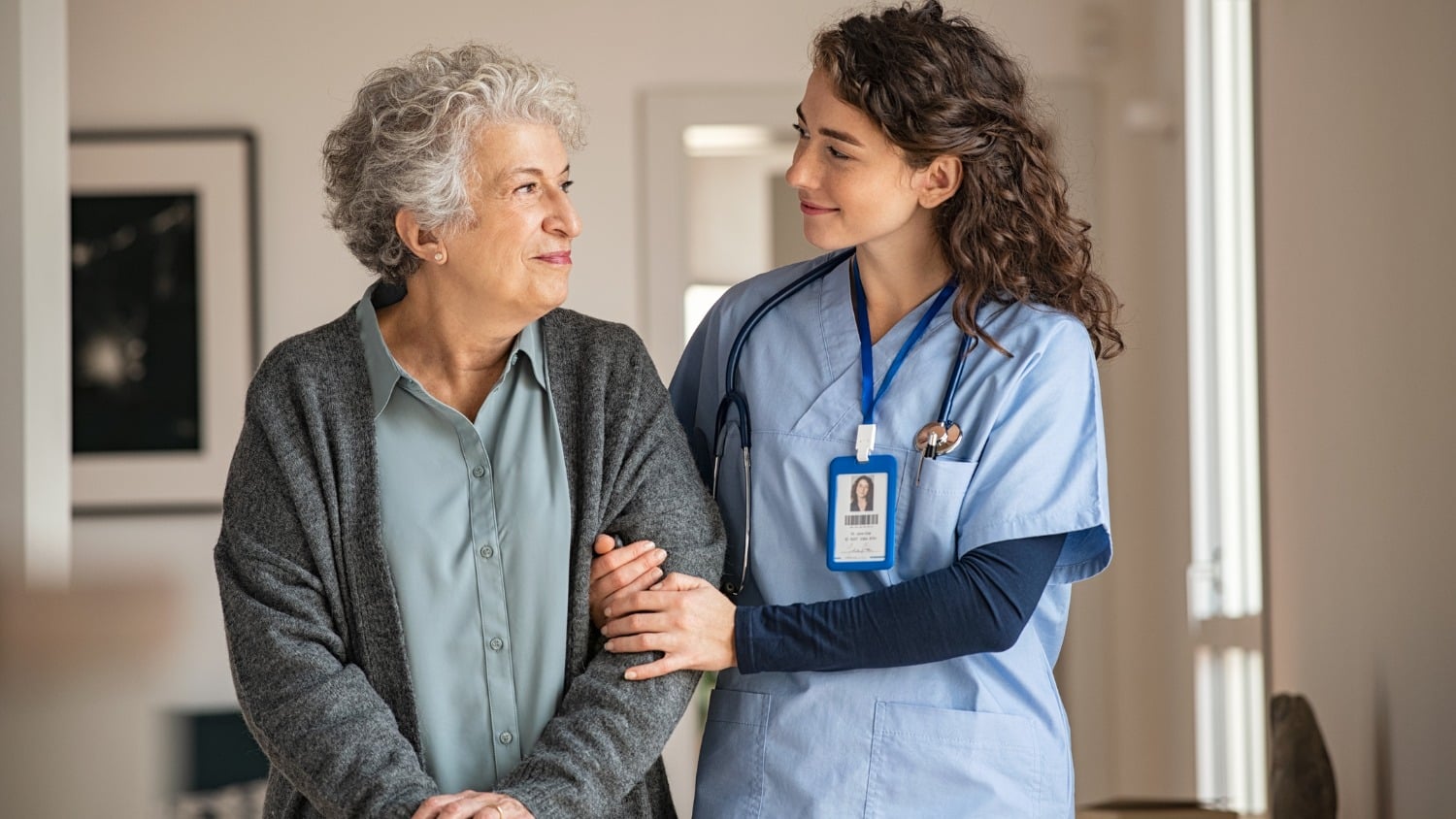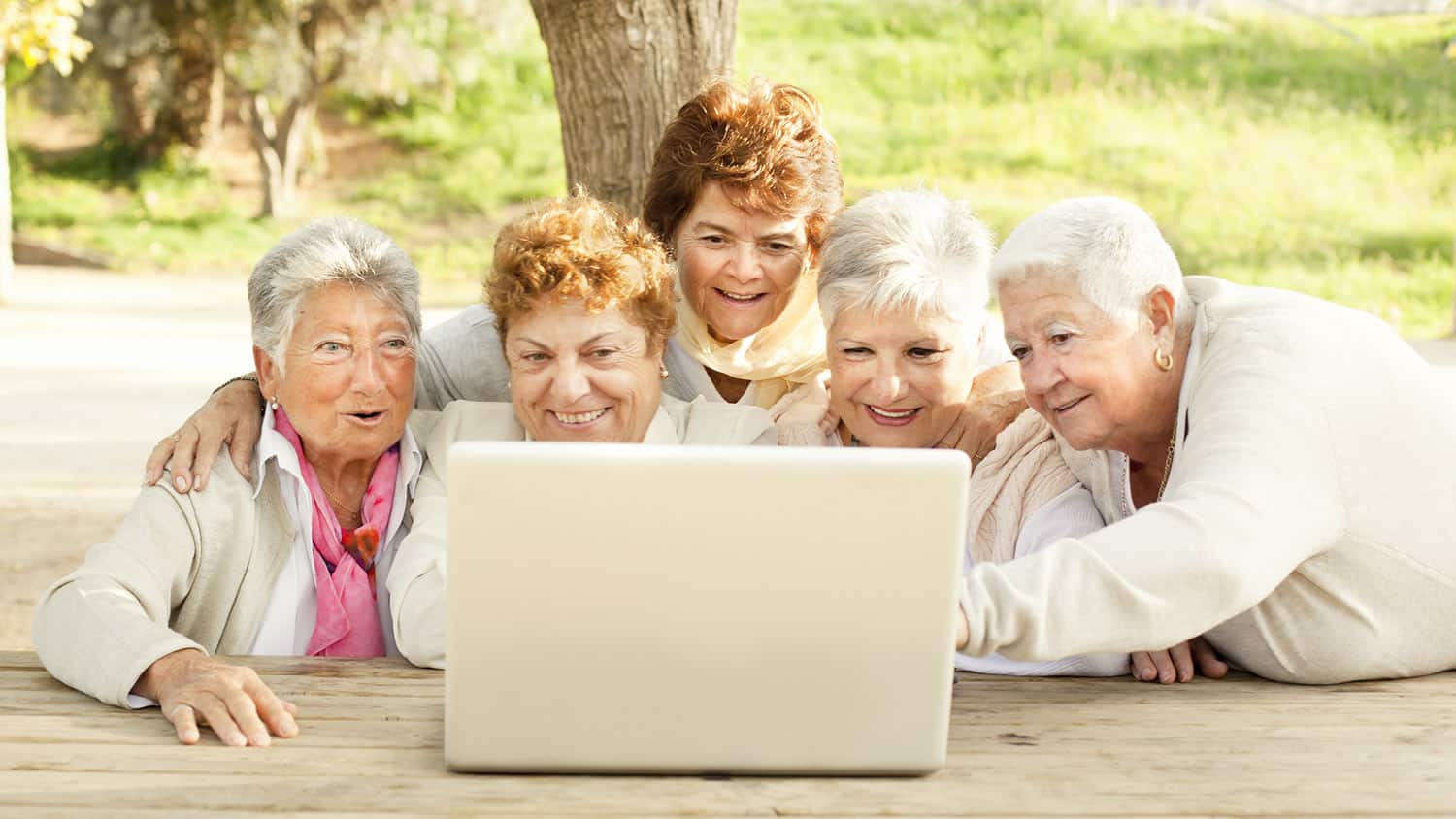
Granny Cams and Care Homes – Should You? Can You?
I was watching the news recently and heard that a local group here in the Charlotte, NC area, Seniors of Urban Living, was pushing North Carolina state lawmakers to sponsor a bill allowing families to monitor their loved ones in nursing home facilities electronically.
I have written about Granny Cams as long ago as 2009. I thought I would revisit the issue. So much has changed. Covid exacerbated isolation. Staffing in senior living took a hit. Distrust of senior care facilities reached a high and people actually moved loved ones out of communities. Add to that the ease of being able to put a Ring camera or similar in your mom or dad’s room.
My mom was once in a rehab facility, and, unbeknownst to me, they moved her to another room without informing me. Now imagine when I walked into what was once her room, the bed nicely made but no sign of Mom. My first thought was: She died! Did the thought of a camera cross my mind at the time? You bet.
What Is a Granny Cam?
A granny cam is any camera that is used to watch your loved one and monitor his or her care. While nursing homes and assisted living get the most press, the truth is that families, especially long-distance caregivers, sometimes choose to install these in the home of a loved one, too.
Legalities
Regardless of state law, some senior communities may have language in their admission contracts banning cameras or imposing specific requirements for their use. Most of this discussion is nursing home centric, not so much assisted living.
Many states have laws mandating that senior communities grant resident requests to install video monitoring equipment, or what we call “granny cams” if the resident and the resident’s roommate have agreed.
My latest count shows that Illinois, New Mexico, Kansas, Louisiana, Minnesota, Missouri, Oklahoma, Texas, Washington, Maryland, Utah and Virginia have some type of law in this area, and New Jersey enacted a program that loans equipment to health care consumers to allow them to do so. There is no federal law prohibiting the use of such cameras, however:
- Installation may violate the privacy rights of the resident and his or her roommate. Consent is required, and if someone is doing this on the sly – or mom or dad have advanced dementia and cannot understand what’s happening – well, privacy goes out the window.
- Cameras could violate HIPAA and may violate wiretapping and electronic surveillance statutes.
- The family must pay for all related expenses. Signs and notices must be posted.
You should contact an attorney to discuss the legal and practical considerations and read this fact sheet from The National Consumer Voice for Quality Long-Term Care.
Abuse Prompts Use
There’s a lot of talk about abuse of seniors in nursing homes and assisted living, as well as in their own homes. Families may use cameras to gather evidence if they really believe that something’s going on.
Some senior care homes install cameras outside of residents’ rooms to monitor staff, and some use it as a training tool. And yes, some families covertly and illegally install them in care homes, too. The camera could be hidden in a digital photo frame or tucked away in plain sight.
I won’t restate the types of abuse. Better resources include:
Likelihood of Abuse Increased Post Pandemic
Some would argue that for older people, the pandemic is still lurking.
In home and community settings, older adults have had fewer opportunities to interact with family, friends, neighbors, senior centers, churches or volunteer programs. This decreases the strength of support networks. Elder abuse is more likely to be unreported or unnoticed.
In care homes, visitation has been restricted and, at times, prohibited throughout much of the pandemic. It still happens when an outbreak occurs. Furthermore, infection control measures in these settings have decreased interactions. Amid these circumstances, any form of elder abuse experienced by residents is less likely to be noticed, reported, or addressed.
Transparency and Better Resident Experience Builds Trust
Cameras usually stem from a lack of trust and a failure to communicate. If you want to decrease the odds of a camera being installed, increase the communication to families and residents.
Even worse, knowing there are cameras hurts morale. And bad morale leads to lesser quality care. Could you do your job well with a camera pointed at you? Staff retaliation is also a possibility after they find out that they’ve been spied on.
Unintended Consequences
Here’s a hypothetical. Let’s say the grandkids are visiting, and they’re talking about their personal life and things going on – and it’s all being recorded on camera, which they don’t realize. That crosses boundaries.
Oh, and what about sex in assisted living? Happens more than you know. And I am sure the residents aren’t setting out to make a sex video.
Alternatives
There are so many systems out there that allow families to keep in close contact with loved ones without cameras. Voice-activated technologies allow you to communicate directly with mom or dad.
Alexa can remind your parents to take their medications, help them request their favorite songs, find social activities and groups and more. Homes can create shared calendars that family members may view, and they can invest in software that allows relatives to securely text staff, request pictures and updates, or view digital records.
In short, minimizing senior isolation minimizes the chance of harm.
Use Common Sense and Do the Right Thing
If you’re even thinking about putting that camera in, consider it a sign that mom or dad is in the wrong place. Find another one.
Let’s Have a Conversation:
What are your thoughts about granny cams? Have you considered installing one in a loved one’s living quarters? Do you think it would violate their privacy? Would you say the pros outweigh the cons or vice versa?
Tags Technology






